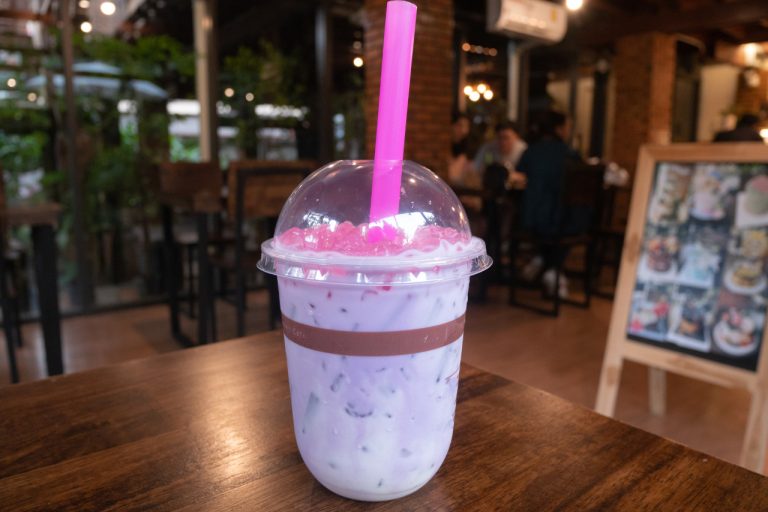Taro milk tea, a popular beverage that combines the nutty and sweet flavors of taro root with creamy milk and tea, has become a staple in bubble tea shops around the globe. While its unique taste and vibrant purple hue make the drink quite appealing, the caffeine content is another important consideration.
Pure taro root itself does not contain caffeine. The caffeine content comes from the tea, or any additional ingredients that might be caffeinated. Some taro milk tea recipes may use a minimal amount of tea or even none at all, relying instead on taro flavoring and milk for their taste.
This means that the caffeine content of tarot milk tea can vary depending upon the recipe.
Things to Consider
- The Type of Tea Used: The choice between black, green, or other types of tea can significantly affect the caffeine content.
- Preparation Method: The strength of the tea, as well as how the preparation methods can greatly influence the caffeine content.
- Portion Size: Larger servings will typically contain more caffeine.
- Additional Ingredients: Some taro milk tea variations might include ingredients such as matcha or coffee, which could increase the caffeine content.

